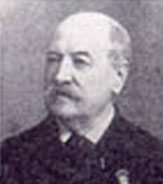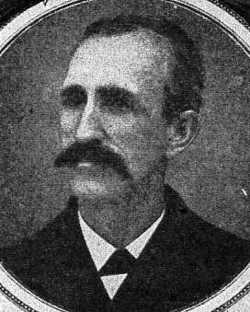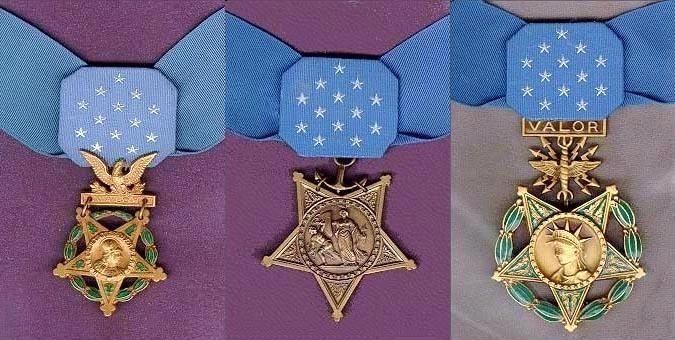Three Medals of Honor and the Second Battle of Winchester

The Second Battle of Winchester fought on June 13-15, 1863, did not conclude with a fine victory moment for the Union army under General Robert H. Milroy. The majority of his soldiers surrendered and their army’s demise opened the doors toward the Potomac for Lee’s advancing Confederates.
However, that did not mean the Union defenders at Winchester lacked courage. Tactically, they even pulled off a remarkably organized and quiet retreat from their fortifications without alerting the nearby Rebels. Among the thousands of Unions soldiers who battled bravely at Second Winchester, three were honored for conspicuous bravery and later received the Medal of Honor for their roles in this fight. Here are their stories:
Lieutenant James R. Durham
Citation: The President of the United States of America, in the name of Congress, takes pleasure in presenting the Medal of Honor to Second Lieutenant James R. Durham, United States Army, for extraordinary heroism on 14 June 1863, while serving with Company E, 12th West Virginia Infantry, in action at Winchester, Virginia. Second Lieutenant Durham led his command over the stone wall, where he was wounded. (March 6, 1890)
On June 14, as the Confederates maneuvered into their positions for the evening assault, other units did not wait idly. The 12th West Virginia had been on the skirmish line most of the day and around 2 p.m. the unit started to pull out, leaving Lieutenant Durham and two companies at a stonewall to cover the retreat. They stayed in that position, exchanging shots with Gordon’s Georgians for a couple hours.

Around 4 p.m. the remainder of the 12th West Virginia, accompanied by the 122nd and 123rd Ohio Regiments came back into line along the stonewall. Orders also came for Durham and his skirmishers to advance against the Confederates who waited in a protected, defensive position. It made little sense, and Durham probably knew it.
He gave the orders, though, called “Good-bye! Come on!” to his boys and jumped over the wall that had sheltered them for hours. With bullets flying around them, they scurried about 30 yards into the field. Durham was wounded, but did not retire. Surprisingly, the Georgians retreated to another set of stonewalls and with their mission accomplished, Durham ordered his men to fall back. Once in safety, the lieutenant examined himself, discovering that a bullet had shattered his right hand and arm; he walked into Winchester and reported to his unit’s hospital.
John T. Patterson, Musician
Citation Excerpt: …With one companion, voluntarily went in front of the Union line, under a heavy fire from the enemy, and carried back a helpless wounded comrade, thus saving him from death or capture. (May 13, 1899)
In the fighting prior to Durham’s advance, but in the same vicinity, the 122nd Ohio Infantry advanced and skirmished with Confederates on Bower’s Hill. During a break in the regiment’s fight, John T. Patterson – who served as the principle musician for the regiment – noted that his good friend, Price Worthing was missing. His search across the battleground attracted the Confederates’ attention, and they started sniping at him.
Dodging bullets, Patterson heard a faint, rhythmic tapping sounding from a hedge bordering the Romney Road. Worthing, an eighteen year old drummer, lay helpless – shot in both legs – and beating a drum cadence on a rifle with a broken stick, trying to attract attention. Patterson summoned another friend – Private Elbridge Robinson – and the two of them carried Worthing to safety. In the process, Patterson was painfully wounded, captured, and spent an extended time in Confederate prison.

Private Elbridge Robinson
Citation: “The President of the United States of America, in the name of Congress, takes pleasure in presenting the Medal of Honor to Private Elbridge Robinson, United States Army, for extraordinary heroism on 14 June 1863, while serving with Company C, 122d Ohio Infantry, in action at Winchester, Virginia. With one companion, Private Robinson voluntarily went in front of the Union line, under a heavy fire from the enemy, and carried back a helpless, wounded comrade, thus saving him from death or capture.” (April 5, 1898)
Robinson – one of Patterson’s hometown friends – rushed to help carry Worthing to safety. No one told him go help Patterson. He went of his own choice, entering an area where bullets tore up the ground and whistled through the air. Unwilling to let Patterson struggle with their comrade’s bleeding body and unwilling to see Worthing die for want of medical attention.
Since its inception in 1861, only 3,400 Medals of Honor have been bestowed “by the President, in the name of Congress.” At the Second Battle of Winchester – a fight ending in a Union defeat – three of those medals were given: a testimony to the individual courage displayed by the common soldier who understand and displayed uncommon courage and compassion on June 14, 1863.
These three men – Durham, Patterson, Robinson – joined the ranks of the few who have received the nation’s highest honor for military service. An honor bestowed to military personnel from all conflicts since the Civil War in an unbroken legacy of bravery. The stories and courage of these three men from West Virginia and Ohio Regiments should be remembered.
“From now until the end of the world, we and it shall be remembered. We few, we Band of Brothers.” – Shakespeare’s King Henry V

Sources:
Wittenberg, Eric J. and Scott L. Mingus, Sr. The Second Battle of Winchester: The Confederate Victory that Opened the Door to Gettysburg. (Savas Beatie, 2016).
The Medal of Honor Foundation: https://themedalofhonor.com/
The Hall of Valor Project: https://valor.militarytimes.com/award/1
U.S. Army History: https://history.army.mil/moh/index.html
Sarah: A very interesting article. A few relevant points are in order: If I recall correctly, nearly half the Medals ever awarded were issued to Civil War veterans – probably in part because it was the only medal at the time which honored valor. Many of those were issued well after the War to veterans who survived – as these three were. Often it was due to efforts by their families, etc. These three veterans were also still alive when they got their Medals. I haven’t done a comparison, but I’d wager that a much smaller percentage of Civil War Medals were posthumous in relation to those from later wars. As we know, a great example of heroism in combat was Lt. Alonzo Cushing in command of the 4th US Battery A on July 3, 1863, staying in command of his battery at the apex of the Confederate attack despite grievous wounds and finally dying at his guns. It took 151 years and a lot of grass roots work to get him his well-earned Medal. (In a good example of what the criteria were at the time, Cushing’s loyal Sergeant who fought alongside him and survived – Frederick Fuger – received the Medal in 1897 while he was still alive). Other young artillery officers who performed equally heroic feats and were KIA or MW – Kirby, Dimick, Woodruff – never got the Medal. None of this is intended to diminish what these three soldiers did. It says more about how the context and criteria of the Medal have evolved. . .